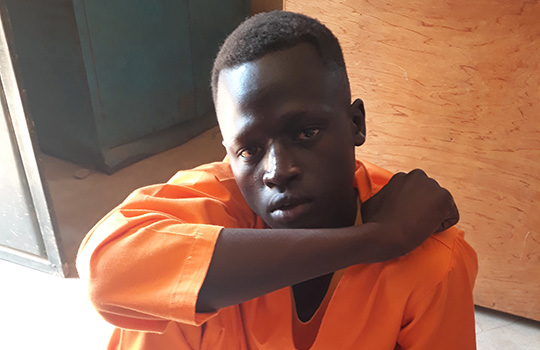When Magai Matiop Ngong was 15 he loved running and gospel singing. He was in secondary school and had ambitions to help people when he grew up. But life as he knew it came to a sudden end in 2017 when he was accused of murder.
At his trial he told the judge that he was only 15 and tried to explain that the killing he was accused of was an accident.
But the judge sentenced him to death by hanging. “The feeling is not good at all,” he says, “to be informed that you are going to die, I am not happy for that…”.
Magai didn’t have a lawyer to help him when he was arrested or in his first trial. The judge told him he had 15 days to write an appeal to ask for his death sentence to be cancelled. He only got a lawyer when he moved prisons.
Last year, seven people were hanged in South Sudan: one of them, like Magai, was just a child.
Two years after his sentence, Magai is on death row in Juba central prison waiting for his appeal but he hasn’t lost his “hope…to be out and to continue… school.”
When South Sudan got its independence in 2011, the country had the opportunity to break with Sudan’s practice of imposing death sentences and executing people but chose not to. Since 2011 Amnesty International has recorded 36 executions and the imposition of 58 death sentences in South Sudan. By 6 June 2018 at least 345 people were known to be under the sentence of death.Since 2011 Amnesty International has recorded 36 executions and the imposition of 58 death sentences in South Sudan. By 6 June 2018 at least 345 people were known to be under the sentence of death. The country has carried out executions every year since independence except for 2014 when Amnesty International did not record any execution in the country. Given the lack of transparency on the use of the death penalty, this does not mean that no executions took place.

